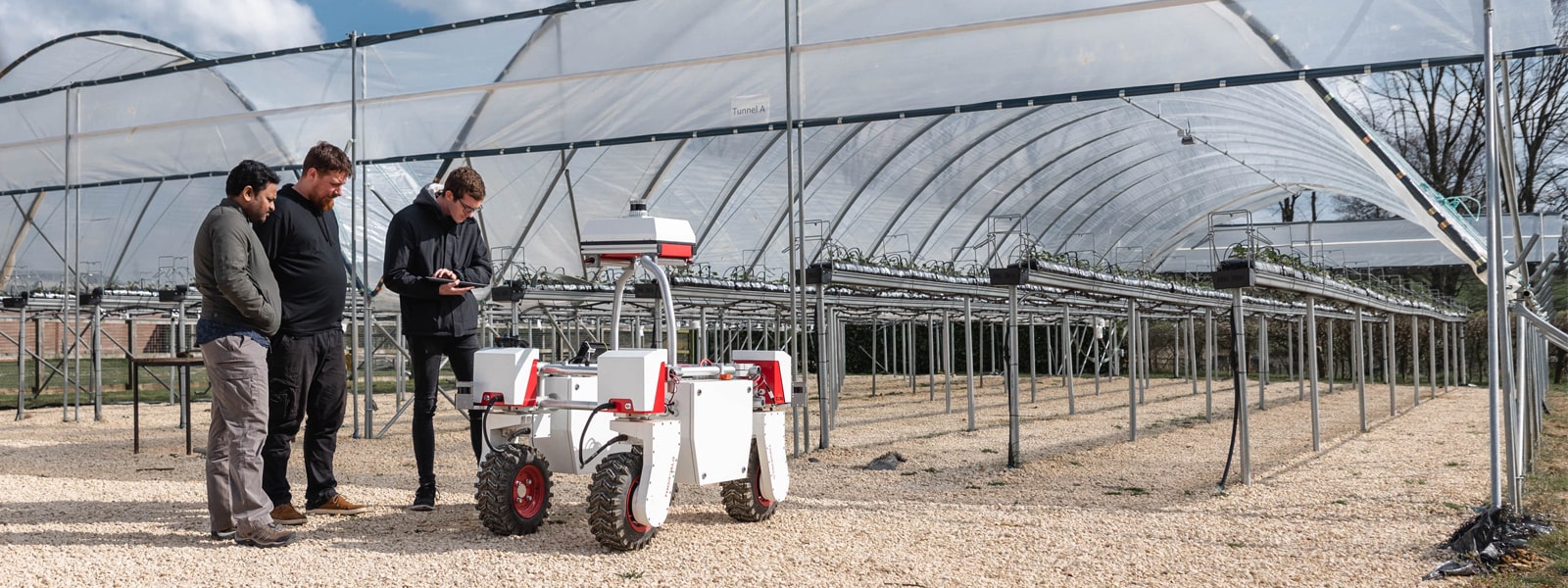K Gaikwad, R Soni, C Fox, C Waltham. Open source hardware robotics interfacing board. TAROS2023
R Trimble, C Fox. Skid-steer friction calibration protocol for digital twin creation. TAROS2023
F Camara, C Waltham, G Churchill, C Fox. OpenPodcar: an open source vehicle for self-driving car research. Journal of Open Hardware, 2023 (Video)
J Davy, C Fox. Simultaneous Base and Arm Trajectories for Multi-Target Mobile Agri-Robot. TAROS 2023 (Video)
G Clawson. A Technology Readiness Level for Blockchain. Proceedings of the 38th ACM/SIGAPP Symposium on Applied Computing, 2023
E Alabi, F Camara, C Fox. Evaluation of OSMC open source motor driver for reproducible robotics research. TAROS2023.
Perrett, A., Pollard, H., Barnes, C., Schofield, M., Qie, L., Bosilj, P., & Brown, J. M. (2023). DeepVerge: Classification of roadside verge biodiversity and conservation potential. Computers, Environment and Urban Systems, 102, 101968.
V Wichitwechkarn, C Fox. MACARONS: A Modular and Open-Sourced Automation System for Vertical Farming. Journal of Open Hardware 7 (1), 1-13, 2023 (Video)
G Clawson, C Fox. Blockchain crop assurance and localisation. UKRAS 2022
J Bennett, B Moncur, K Fogarty, G Clawson, and Charles Fox. Towards Open Source Hardware Robotic Woodwind: an Internal Duct Flute Player. ICMC, 2022 (Video)
G Clawson. Sub-SPARC: Investigation of Imperfect Teachers. Proceedings of the 5th UK-RAS Conference 2022
J Stevenson, C Fox. Scaling a hippocampus model with GPU parallelisation and test-driven refactoring. Proc. Biomimetic and Biohybrid Systems (Living Machines) 2022
H Rogers, B Dawson, G Clawson, C Fox. Extending an Open Source Hardware Agri-Robot with Simulation and Plant Re-identification. Oxford AIMS Conference 2021
A Henry, C Fox. Open source hardware automated guitar player ICMC 2021 (Video)
Heiwolt, K, Mandil, W, Cielniak, G and Hanheide, M (2020) Automated Topological Mapping for Agricultural Robots, UKRAS20
H Rogers, C Fox. An open source seeding agri-robot Proceedings of The 3rd UK-RAS Conference, 2020 (Video)
Millard, A, Ravikanna, R, Groß, R, and Chesmore, D (2019) Towards a Swarm Robotic System for Autonomous Cereal Harvesting, TAROS2019.





